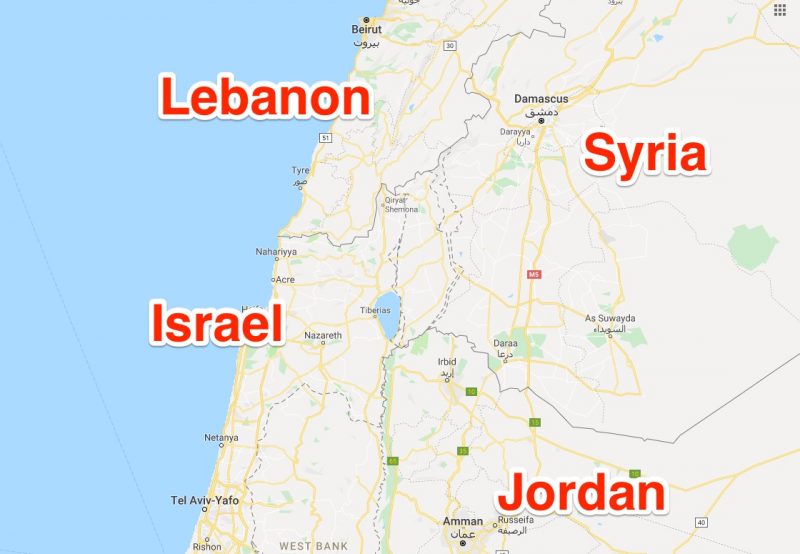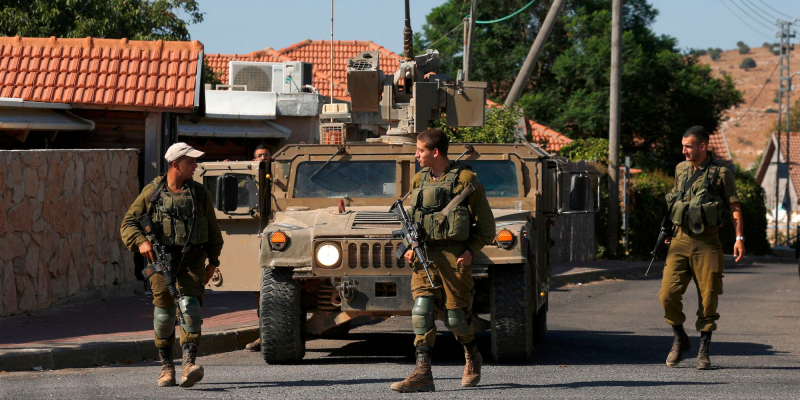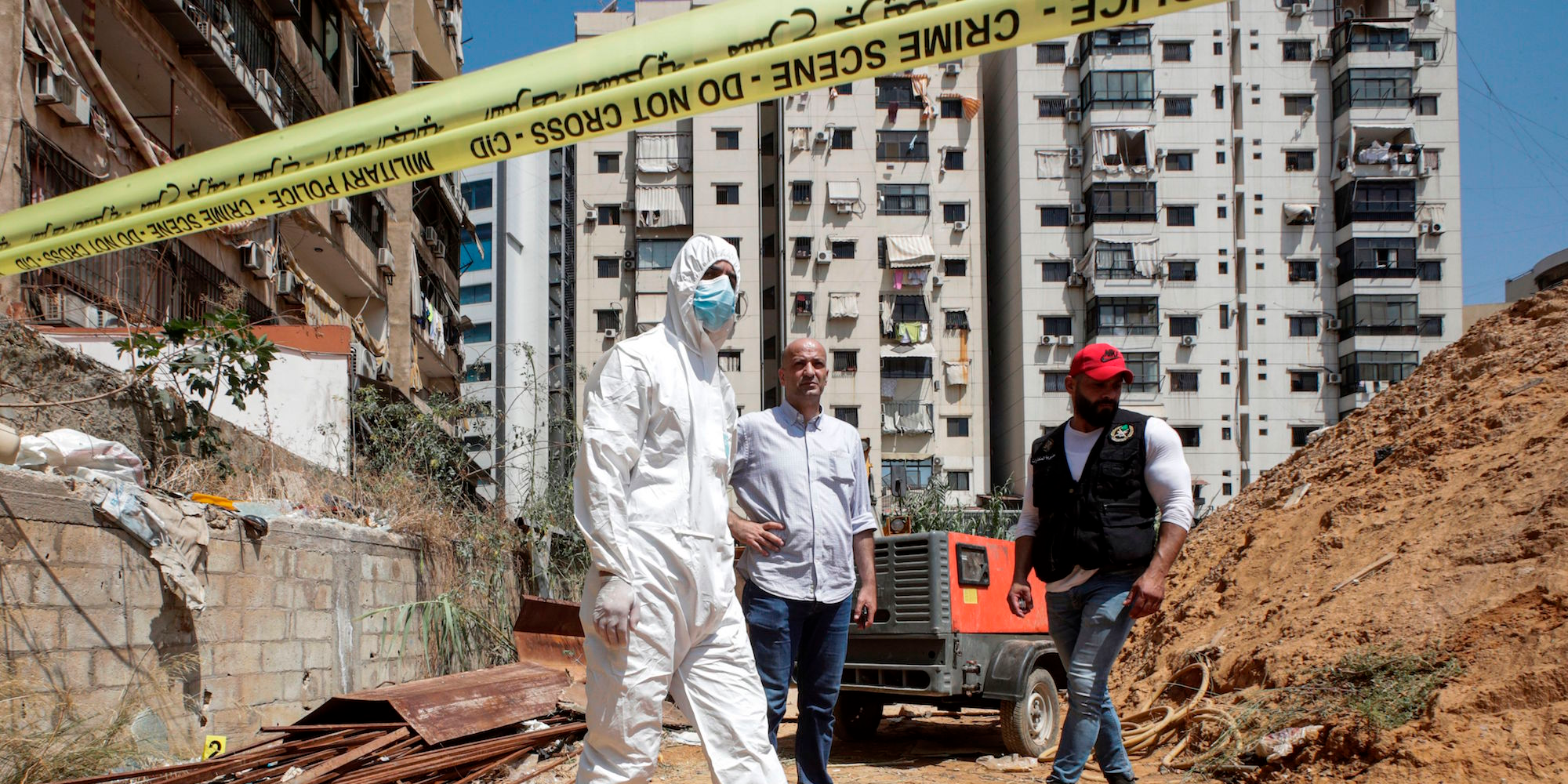- Tensions between Israel and its neighbors have soared in the past week.
- Israel has launched air strikes on Iraq and Syria, while Hezbollah in Lebanon accuses it of trying to assassinate a leading militant with exploding drones.
- Sources in Hezbollah, Lebanese intelligence, and the UN, tell Business Insider they fear a repeat of the brutal 2006 Israel-Lebanon war.
- Israel appears to be bracing for an attack, ordering troops away from some roads near the Lebanese border Tuesday.
- Visit Business Insider’s homepage for more stories.
Israel barred its military personnel from traveling on vulnerable roads along the border with Lebanon on Tuesday – the latest sign that the two nations are closer to war than any time in the past decade.
Tensions between Israel and Hezbollah – the Lebanese Shiite Muslim militant group closely aligned with Iran – have been ramping up for the past week over a series of air and drone strikes.
Hezbollah has for some years been openly established along the Syrian border with Israel, and has made high-profile interventions into the Syrian civil war on the side of its president, Bashar Assad.

Even a small conflict along Israel's borders with Lebanon or Syria could quickly expand and engulf the region.
Israeli forces have admitted to bombing a series of targets in Iraq, Lebanon and Syria over the last month - the first such action in Iraq by Israel in nearly 40 years. Israeli officials say they are disrupting an advanced plot to send exploding drones over Israel's northern border.
While Israel has repeatedly hit Hezbollah affiliated targets over the course of the Syria civil war, the current escalation sows fears of a broader conflict as the Syrian civil war winds down and thousands of well trained and experienced Hezbollah fighters refocus their attention back on the conflict with Israel. It's serious because each side knows that a relatively quiet period on the border itself is coming to an end as the conflict in Syria wraps up.
A series of strikes that some say look like a declaration of war
Top political and military leaders in Iraq, Syria and Lebanon denounced the Israeli strikes, calling them tantamount to a declaration of war.
Sources in Lebanese intelligence, the UN peacekeeping mission, and Hezbollah itself told Business Insider that the strikes have pushed all sides closer to a serious confrontation than any time since the month-long 2006 Lebanon War.

The threat of this attack saw Israeli warplanes strike targets in Damascus on Saturday, followed by a bizarre episode Sunday when two apparently Israeli drones crashed into Hezbollah's media affairs office in southern Beirut.
Israel has not addressed the drone incident - but Hezbollah insists that they were carrying explosives, and were meant to assassinate an unnamed Hezbollah official.
Hezbollah chief Hasan Nasrallah warned Israeli soldiers along the border to "await our response."
On Tuesday, air strikes struck Hezbollah-associated targets near the Syrian city of Abu Kamal. It is not yet clear whether they were the work of Israeli forces, but if so it would bring the total number of incidents to five attacks in four days.
"Terrible and dangerous"
Israel's decision to warn its personnel away from the Lebanon border on Tuesday likely stems from fears that Hezbollah could attempt a commando mission over the border to kidnap Israelis, a tactic the group regularly used in the 1990s and 2000s.
"It's terrible and dangerous," said an official assigned to the UN peacekeeping mission that controls the border between Israel and Lebanon.
The official spoke to Business Insider anonymously because he does not have permission to speak to the press openly about the situation.
The UN has some 11,000 troops and observers along the border and, according to the official, these forces have been put under alert and have prepared to shelter in case they are caught between a new round of fighting.
Hezbollah and Israel have not had a major military confrontation since the month-long war in July 2006 that saw more than a thousand Lebanese civilians killed as well as more than 100 Israelis.
The expansion of the group throughout Syria as it fights to protect the regime of its close ally Bashar Assad has led to scores of air strikes on reported supply depots across Syria and Lebanon.
In turn, the Israeli expansion into hitting targets in Iraq associated with Hezbollah and its allies in the Iranian Revolutionary Guard took the region by surprise and has led to fears that a broader confrontation is coming.
"All of our accounts with the Israelis remain open and if they continue to hit us with suicide drones and air strikes, we will be forced to respond"
"The resistance was focused on Syria for the past five years but that situation is stabilizing and because of Israeli aggression we have begun to prepare for another conflict with them," according to Abu Hasan, a Hezbollah security commander in southern Beirut.
"All of our accounts with the Israelis remain open and if they continue to hit us with suicide drones and air strikes, we will be forced to respond," he added.
With tens of thousands of rockets deeply dug into southern Lebanon, and possibly Syria, it wouldn't require much of an escalation to develop into an all-out-war.
Israel, for its part claims that its Iron Dome missile defense system can protect it from a deluge of Hezbollah rockets and missiles.
But while that system has been effective around the Gaza Strip, an exchange of fire with Hezbollah would be a much harder test because the group can launch exponentially more rockets than any other group in the region.

